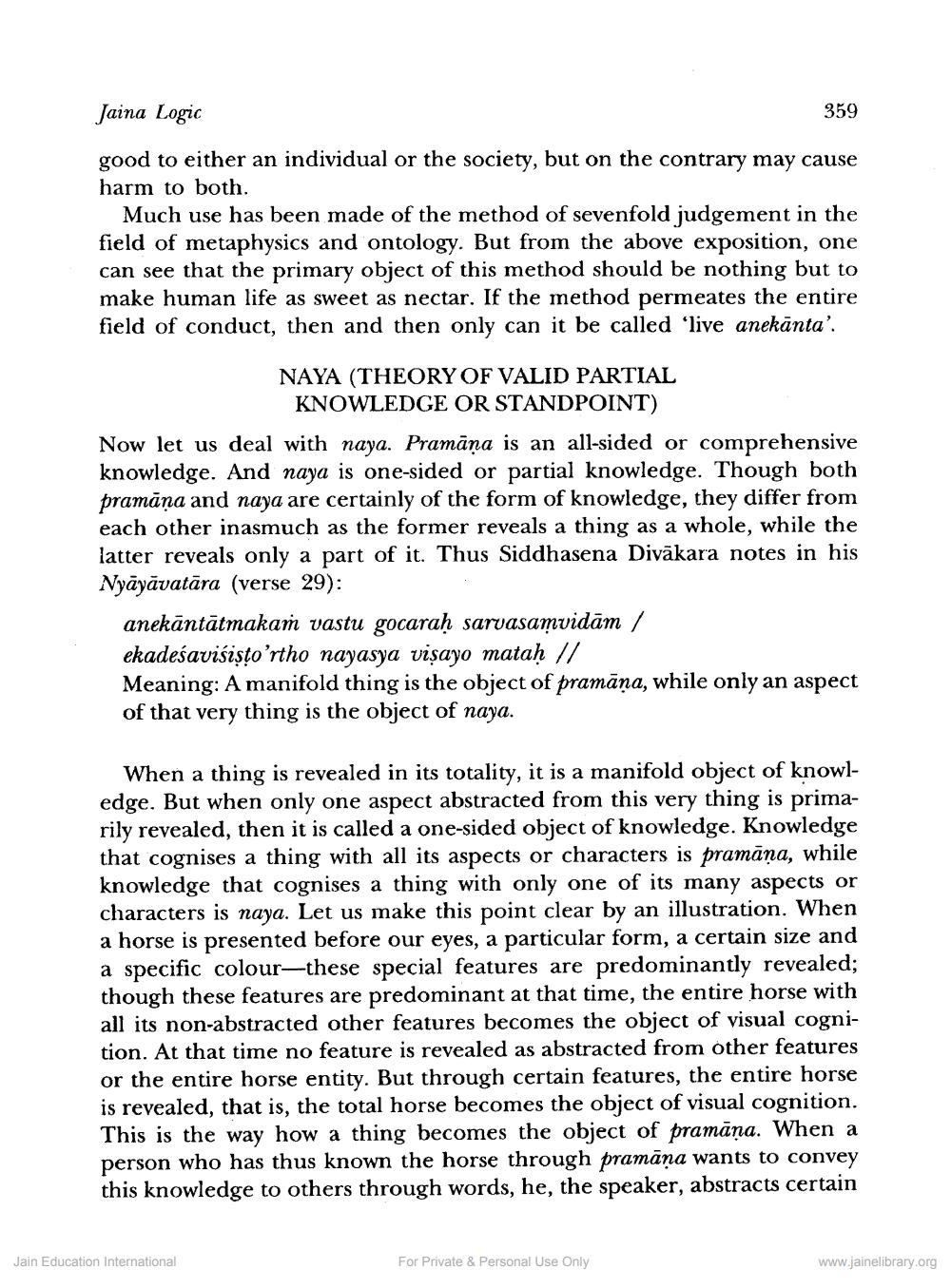________________
Jaina Logic
359
good to either an individual or the society, but on the contrary may cause harm to both.
Much use has been made of the method of sevenfold judgement in the field of metaphysics and ontology. But from the above exposition, one can see that the primary object of this method should be nothing but to make human life as sweet as nectar. If the method permeates the entire field of conduct, then and then only can it be called 'live anekānta'.
NAYA (THEORY OF VALID PARTIAL
KNOWLEDGE OR STANDPOINT) Now let us deal with naya. Pramāna is an all-sided or comprehensive knowledge. And naya is one-sided or partial knowledge. Though both pramāna and naya are certainly of the form of knowledge, they differ from each other inasmuch as the former reveals a thing as a whole, while the
veals only a part of it. Thus Siddhasena Divākara notes in his Nyāyāvatāra (verse 29):
anekāntātmakam vastu gocaraḥ sarvasamvidām / ekadeśavišisto’rtho nayasya viņayo mataḥ // Meaning: A manifold thing is the object of pramāna, while only an aspect of that very thing is the object of naya.
When a thing is revealed in its totality, it is a manifold object of knowledge. But when only one aspect abstracted from this very thing is primarily revealed, then it is called a one-sided object of knowledge. Knowledge that cognises a thing with all its aspects or characters is pramāņa, while knowledge that cognises a thing with only one of its many aspects or characters is naya. Let us make this point clear by an illustration. When a horse is presented before our eyes, a particular form, a certain size and a specific colour-these special features are predominantly revealed; though these features are predominant at that time, the entire horse with all its non-abstracted other features becomes the object of visual cognition. At that time no feature is revealed as abstracted from other features or the entire horse entity. But through certain features, the entire horse is revealed, that is, the total horse becomes the object of visual cognition. This is the way how a thing becomes the object of pramāna. When a person who has thus known the horse through pramāna wants to convey this knowledge to others through words, he, the speaker, abstracts certain
Jain Education International
For Private & Personal Use Only
www.jainelibrary.org




